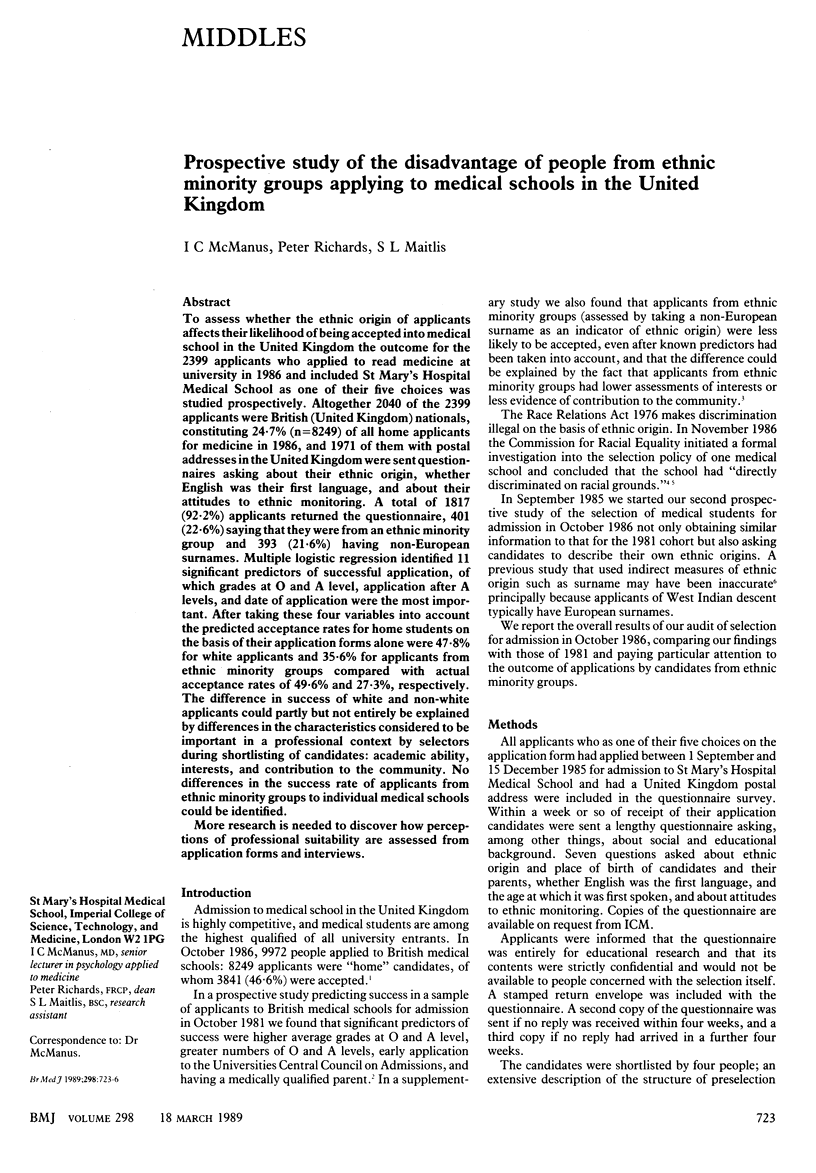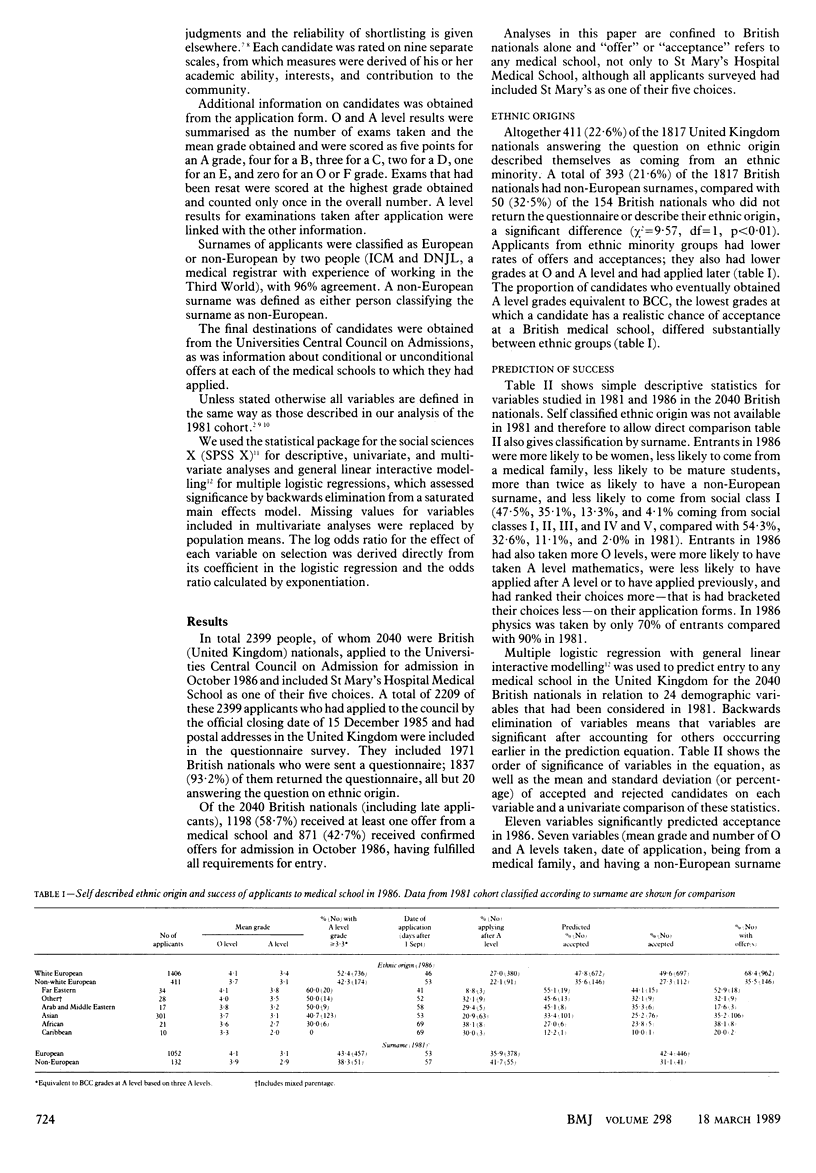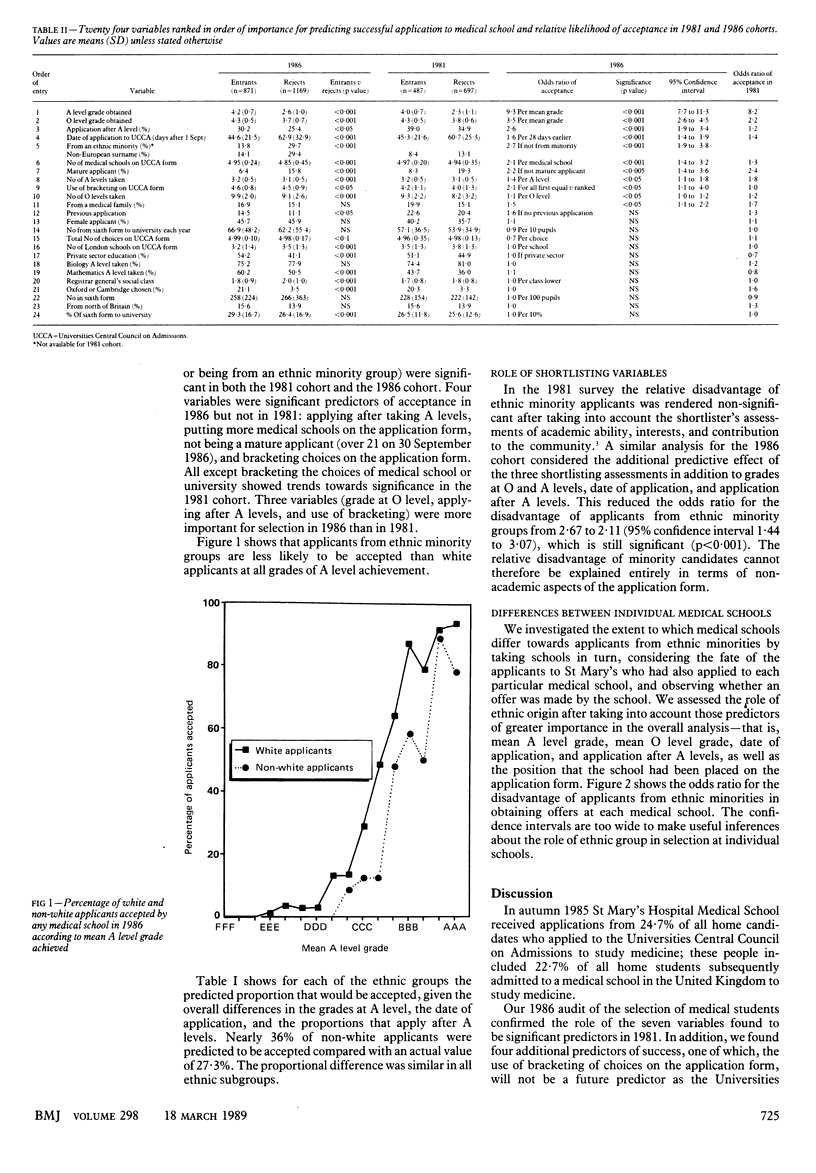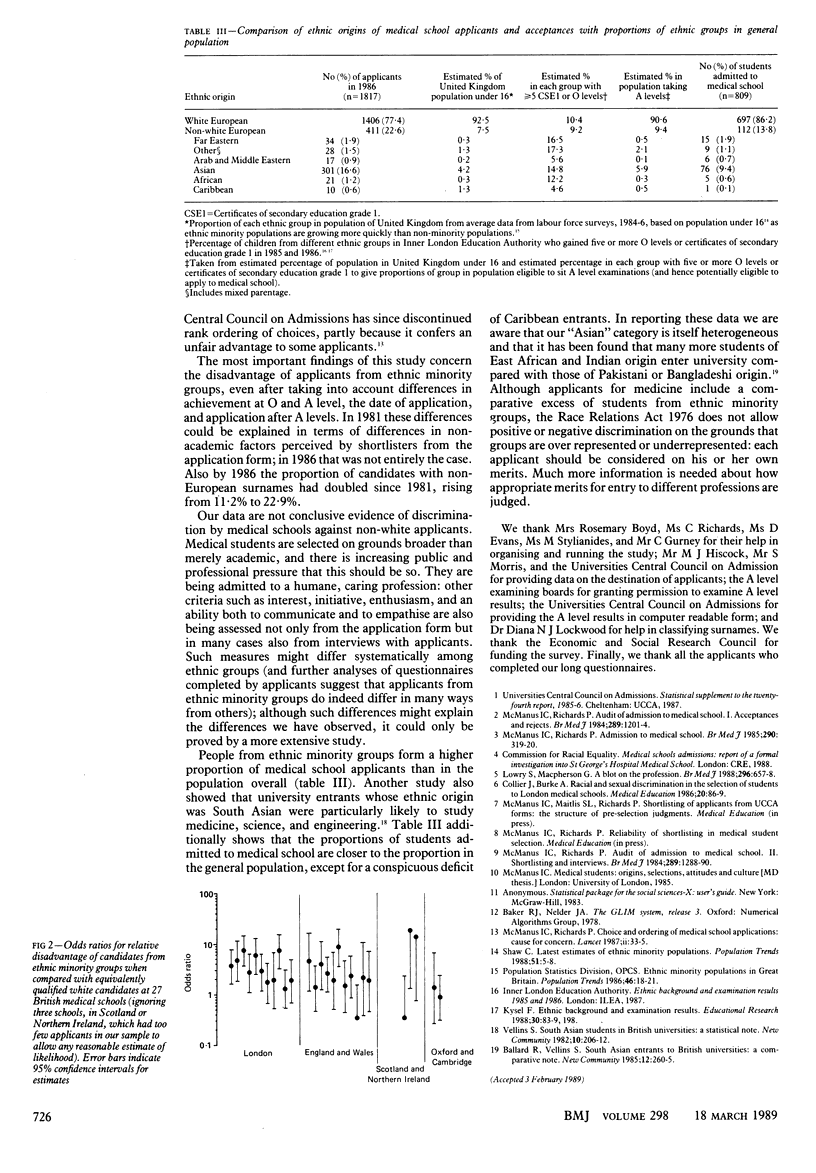Abstract
To assess whether the ethnic origin of applicants affects their likelihood of being accepted into medical school in the United Kingdom the outcome for the 2399 applicants who applied to read medicine at university in 1986 and included St Mary's Hospital Medical School as one of their five choices was studied prospectively. Altogether 2040 of the 2399 applicants were British (United Kingdom) nationals, constituting 24.7% (n = 8249) of all home applicants for medicine in 1986, and 1971 of them with postal addresses in the United Kingdom were sent questionnaires asking about their ethnic origin, whether English was their first language, and about their attitudes to ethnic monitoring. A total of 1817 (92.2%) applicants returned the questionnaire, 401 (22.6%) saying that they were from an ethnic minority group and 393 (21.6%) having non-European surnames. Multiple logistic regression identified 11 significant predictors of successful application, of which grades at O and A level, application after A levels, and date of application were the most important. After taking these four variables into account the predicted acceptance rates for home students on the basis of their application forms alone were 47.8% for white applicants and 35.6% for applicants from ethnic minority groups compared with actual acceptance rates of 49.6% and 27.3%, respectively. The difference in success of white and non-white applicants could partly but not entirely be explained by differences in the characteristics considered to be important in a professional context by selectors during shortlisting of candidates: academic ability, interests, and contribution to the community. No differences in the success rate of applicants from ethnic minority groups to individual medical schools could be identified. More research is needed to discover how perceptions of professional suitability are assessed from application forms and interviews.
Full text
PDF



Selected References
These references are in PubMed. This may not be the complete list of references from this article.
- Collier J., Burke A. Racial and sexual discrimination in the selection of students for London medical schools. Med Educ. 1986 Mar;20(2):86–90. doi: 10.1111/j.1365-2923.1986.tb01052.x. [DOI] [PubMed] [Google Scholar]
- Lowry S., Macpherson G. A blot on the profession. Br Med J (Clin Res Ed) 1988 Mar 5;296(6623):657–658. doi: 10.1136/bmj.296.6623.657. [DOI] [PMC free article] [PubMed] [Google Scholar]
- McManus I. C., Richards P. Audit of admission to medical school: I--Acceptances and rejects. Br Med J (Clin Res Ed) 1984 Nov 3;289(6453):1201–1204. doi: 10.1136/bmj.289.6453.1201. [DOI] [PMC free article] [PubMed] [Google Scholar]
- McManus I. C., Richards P. Audit of admission to medical school: II--Shortlisting and interviews. Br Med J (Clin Res Ed) 1984 Nov 10;289(6454):1288–1290. doi: 10.1136/bmj.289.6454.1288. [DOI] [PMC free article] [PubMed] [Google Scholar]
- McManus I. C., Richards P. Choice and ordering of medical school applications: cause for concern. Lancet. 1987 Jul 4;2(8549):33–35. doi: 10.1016/s0140-6736(87)93063-7. [DOI] [PubMed] [Google Scholar]



